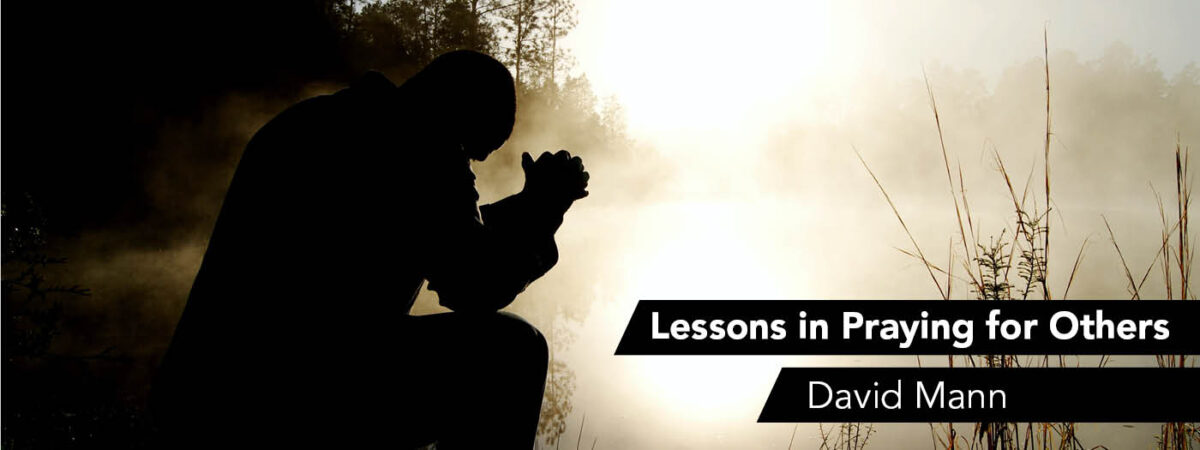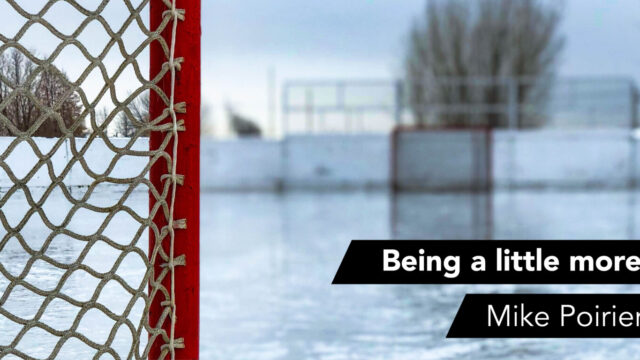Throughout this pandemic, prayer has become a greater priority for many.
Perhaps, like me, while COVID has disrupted your social life, it hasn’t debilitated you. Meanwhile, you have family and friends who have endured greater hardship, and therefore, they’ve been further impressed upon your heart at this time.
So, how do you pray for them? How do you effectively bring these loved ones and all of their health, finance, and emotional concerns before God’s throne?
This is a question I’ve been asking for the past five years. At LIFE 100.3 we’ve held intercessory prayer meetings with our staff and members of the community since 2016. I launched this initiative with the utter gratitude that it’s our churches and businesses in Central Ontario enabling our station to stay on-air. We ought to pray for them.
Throughout these meetings, we’ve seen incredible fruit in answers to prayer. From youth salvations to house sales to timely and abundant church donations, it’s been very encouraging. That being said, these meetings haven’t been without their share of disappointment: low attendance turnouts, job losses for businesses we’ve prayed for, and even a member of our community taking his own life.
The following are a few lessons I’ve learned along the way in praying for others.
1. Intercessory Prayer is about continuing the conversation (Tim Keller)
Prayer is precisely talking with God, and God most predominantly speaks to us through His Word. Therefore, in digesting the Holy Scriptures, in immersing yourself in what He has said, you’ll be fit to respond to Him. What’s different about this conversation than one that you’d have with a close friend is that God begins. He is our starting point.
The common ACTS prayer acronym starts with A for this reason. It’s most helpful to begin prayer with adoration. After all, this is how Jesus taught us to begin our prayers, “Our Father in heaven, hallowed be your name” (Matt. 6:9). Prayer begins with praise. The bigger you see God, the bigger you’ll pray.
Intercessory prayer is about continuing the conversation because in doing so you’re more inclined to take a posture of reverence, and you’re also opening yourself up to greater intimacy.
What I mean by that is when you orient your prayers in the Bible; this ensures you’re walking on a two-way street.
2. The most powerful prayers consist of ‘logic on fire’ (Dr. Martyn Lloyd-Jones)
It’s possible that you may feel disconnected with the God who inspired the Scripture. Often this is the case of proclaiming God’s truth in your head but, not in your heart. You’re not being emotionally vulnerable with God.
It’s worth noting that when Jesus shared what we refer to as ‘The Lord’s Prayer,’ he did not say that “this is what you should pray,” he said, “this is how you should pray.” That’s significant because it frees you up to be authentically you. Yes, you have a framework, and there are several other great prayers in the Bible to consider too, but what this does not mean is you have to recite these words verbatim.
As followers of Jesus, while we are instructed over and over again to be thankful, we are caught in the middle of God’s redemptive plan, between the ‘already’ and the ‘not yet’.
Our world remains corrupt, you and I, despite being clothed with Christ’s righteousness, remain in the presence of sin. So, to see our world through this lens, you can’t help but mourn for what is deceitful in your heart and for how sin has plagued our world.
Our prayer response then should be one that includes emotion. It’s all-consuming. The Apostle Paul told the church of Corinth, “See what this godly sorrow has produced in you: what earnestness, what eagerness to clear yourselves, what indignation, what alarm, what longing, what concern, what readiness to see justice done” (2 Cor. 7:11).
In my personal experience praying on the radio, when I prepare with scriptural basis, and speak to God with emotional sensitivity for whom I’m praying over – when my heart does not feel quite right – this is when listeners call in afterwards to say they were touched by my prayer. ‘Logic on fire’ resonates, ‘logic on fire’ unlocks us.
3. Joy follows obedience (Jesus; see John 15)
Last, prayer is about consistency. It is a spiritual discipline, a ‘means of grace’. As the late Dallas Willard put it, “we must work in what God has worked out [our salvation].” You might not have a breakthrough every time that you come before God, but the more you come before Him, the more likely you are to have those moments of deep intimacy.
The same goes for intercessory prayer. By April of 2017 we were about to have our fourth prayer meeting at the radio station. The first three we had good turnouts, but on this day our numbers were starting to drop. I remember it feeling like there was one cancellation after the next.
Before I knew it, the only people that were planning to come were Scott (former station manager) and me. At this point I was getting worried, Scott is hyper-organized, and to make it a perfect storm, I get a phone call from him about an hour before start time. He asked me who was coming, and I told him, and then I can’t believe I did this, but I suggested, ‘hey, maybe we should just cancel until another day.’ I’ll never forget his response: ‘David if we cancel what would that say about us?’
He was right, if we give up on prayer, what does that say about us? We went ahead with the meeting, just the two of us, and in spite of my doubts, we saw more prayer answered at that meeting than any of the others. And guess what! At the next meeting we had almost 20 people join us. When you pray, you have to be fully confident that God will work, no matter what the circumstance, no matter what you’re feeling. Prayer isn’t a question of whether God will work, it’s confidence that he will.
A couple months into the COVID pandemic last year, I, like many other Canadians caught a case of Zoom fatigue. After our virtual prayer meeting last May, I decided we should take a break from this (and that we could resume once we were allowed to meet in-person again). Of course, this pandemic has persisted longer than anticipated, but I’m happy to report that in February we picked back up where we left off with the meetings.
We’re going to keep praying, and I encourage you to do the same.
See more from David Mann on his blog page and check out his podcast Culture At A Crossroads wherever you get your podcasts.









